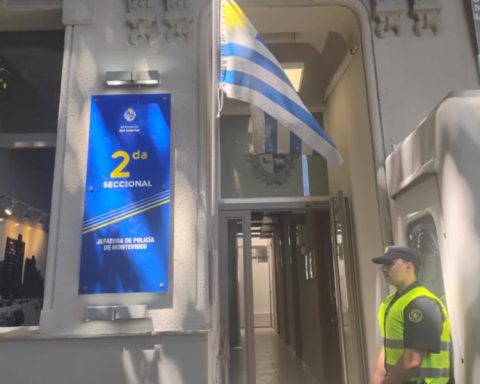Among the data presented it can be seen that Gasoline sales at stations on the west coast show volumes equal to or less than the worst moment of the pandemic.
The historical series shows that in April and May 2020, the sale of gasoline in retail establishments Salto, Paysandú and Río Negro they touched a floor of 4,000 and 5,000 cubic meters respectively. That sales volume was repeated in the same months of this year.
The department where the decline is most noticeable is Salto. The data shows that in the accumulated year up to May, 7,000 cubic meters of gasoline had been sold in that part of the country, against 11,000 cubic meters in the same period last year.
“The difference with Argentina is being felt with a lower demand for gasoline than projected in recent months. We are even at the limits of what the pandemic was when there was no mobility. We are with similar sales”, affirmed the general manager of Ancap, Ignacio Horvath. Previously, monthly volumes of between 6,000 and 7,000 cubic meters were sold.
ancap
Monthly sales of gasoline in the country as a whole during May were around 64,000 cubic meters.
a palliative
To try to alleviate the exchange difference with Argentina, the government announced in the middle of the month an increase in the amount corresponding to the reduction of the Internal Specific Tax (IMESI), which went from 30% to 40% in the sale price in the established points: Fray Bentos-Puerto Unzué, Paysandú-Colón, Salto-Concordia, Chuy, Aceguá, Río Branco, Rivera, Artigas and Bella Unión. This with the aim of discouraging people from crossing to load gasoline or diesel and make other purchases.
The Border Prices indicator prepared by the Universidad Católica Campus Salto, showed that in May the price difference in the liter of Super gasoline with Concordia was 115% considering the new IMESI reduction of 40%. If such benefit were not considered, the price difference would reach 258%.
The service stations in the area have been affected in their activity, as have other businesses and companies located on the border with Argentina, which significantly lowered their sales since they cannot compete with prices.
Effect on employment
Apart from other factors that may also affect employment in departments very close to border crossings, such as Río Negro, Paysandú and Salto, the lower sales of local businesses have an effect on the workforces of small and medium-sized companies. This is how different unions in the area have raised it, there are even establishments that have closed. Trade and services is one of the sectors that generates the most jobs.
The latest official data shows that Salto was one of the hardest hit departments. The unemployment rate rose to 14.7% (9,900 unemployed) in the first quarter of the year, from 14.2% in the previous moving quarter. Thus, this northern department remains the worst in the class, with the highest unemployment rate in the country, and with a deteriorating trend that has been observed month after month since the middle of last year, according to data from the National Institute of Statistics. (INE).














